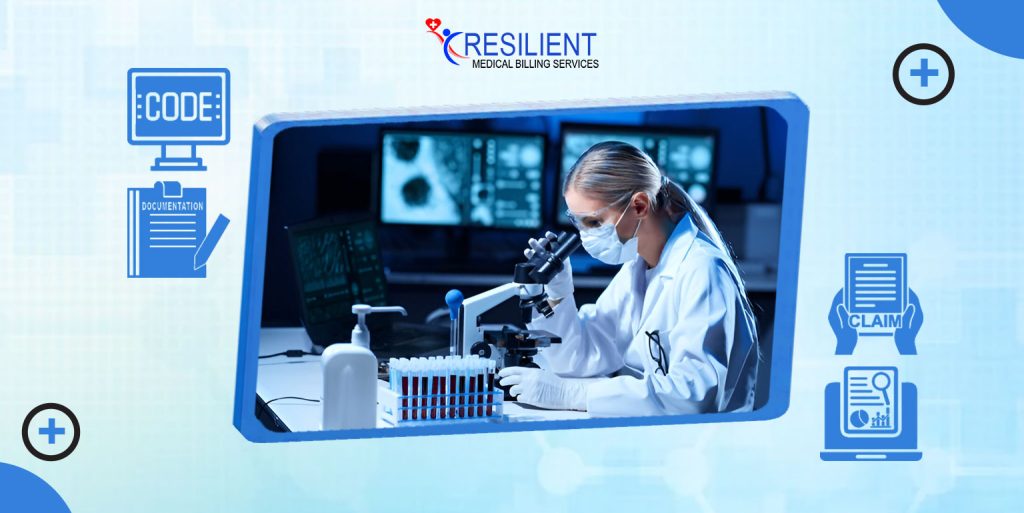Accurate coding is essential, especially when it comes to medical billing and coding. At the heart of this process is ICD-10 codes—the International Classification of Diseases, 10th Revision—which group everything from diseases and their symptoms to medical treatments. These codes are key to ensuring that clinicians can communicate precise diagnostic information to insurers and other stakeholders. Without these codes, standardizing medical records and billing would be nearly impossible.
Regarding lab services, Laboratory ICD-10 codes are just as important. Lab diagnostics involve various tests and procedures that require precise coding to ensure proper reimbursement and avoid insurance claim delays or denials. Given the complexity of lab tests and their varied applications, accurate coding becomes even more critical to delivering timely and efficient care.
What Are Laboratory ICD-10 Codes?
Laboratory ICD 10 codes classify laboratory testing and diagnostic procedures. These codes apply to blood tests, imaging, pathology, and other diagnostic tests that help clinicians evaluate patients. Healthcare providers ensure insurers understand the medical necessity of each laboratory service by providing the appropriate ICD-10 number.
Laboratory ICD-10 codes greatly affect insurance and reimbursement claims. Each lab service has a code that identifies its diagnostic purpose. If the improper code is utilized, the claim may be refused or delayed, incurring provider financial and operational inefficiencies. Accurate coding helps clinicians make treatment decisions by ensuring that lab tests reflect the patient’s condition.
Understanding the Lab DX Code Set
Lab DX codes show medical problems that need lab tests. These ICD numbers make sure that lab tests are documented as medically necessary.
DX codes tell doctors why they need to do lab tests. Insurers and healthcare workers use these codes to make sure that tests are medically necessary. The diagnosis and test must be related, so if you don’t have the right DX codes, billing may be held up or turned down.
When doctors order blood tests, they have to include a DX code that matches the patient’s symptoms or health situation. This alignment shows that the test is important for diagnosis, monitoring, and treatment. If a person has signs of diabetes or prediabetes, they should have a DX code for it and lab orders for glucose or HbA1c tests. These codes make sure that lab tests are covered by insurance because they are needed to treat the patient’s illness.
Common lab-related DX codes are:
Lab-related DX codes cover endocrinology, cardiology, and infectious disorders. Common examples are:
E11.9 – Type 2 diabetes mellitus without complications (often associated with glucose monitoring).
R50.9 – Fever, unspecified (used when ordering blood cultures or infection-related tests).
I10 – Essential hypertension (linked to cholesterol and lipid panels).
B34.9 – Viral infection, unspecified (used for viral testing, including flu and COVID-19 testing).
These codes ensure that healthcare providers have the information necessary to accurately assess the patient’s condition and order appropriate lab tests.
ICD-10 Code for Lab Review
Why ICD-10 Coding Matters
Correct ICD-10 codes link lab reviews to patients’ health conditions, facilitating billing and reimbursement. These codes verify the medical necessity of the lab review and prevent coding error claim rejections. Coding errors can delay service, lower compensation, and lead to audits.
Laboratory Review and Quality Control ICD-10 Codes
Some ICD-10 codes are only used for lab reviews and follow-ups, like when keeping an eye on long-term conditions, making sure that treatments are working, or doing regular quality control checks. As an example:
Z13.9 – Encounter for screening, unspecified (used for general health screenings and preventive lab tests).
R97.2 – Elevated prostate-specific antigen [PSA] (for follow-up tests after abnormal results).
Z79.01 – Long-term (current) use of anticoagulants (used when monitoring blood levels for patients on medication such as warfarin).
Laboratory ICD-10 Codes Cheat Sheet - Your Quick Reference Guide
Correct coding is very important for healthcare bills, compliance, and running a lab efficiently. Here is a shortened laboratory ICD-10 lab codes cheat sheet that makes it easy to find the most common lab-related codes. This will make the process go more quickly.
This guide is meant to help lab technicians, medical coders, and billing experts follow the coding rules.
Commonly Used Laboratory ICD-10 Codes
Here’s a breakdown of some frequently used ICD-10 codes related to lab tests and procedures, along with brief descriptions:
Z01.83: Encounter for blood typing.
Z12.11: Encounter for screening for malignant neoplasm of colon.
Z13.1: Encounter for screening for diabetes mellitus.
R79.89: Other specified abnormal findings of blood chemistry.
E11.9: Type 2 diabetes mellitus without complications.
R73.9: Hyperglycemia, unspecified.
E78.5: Hyperlipidemia, unspecified.
D50.9: Iron deficiency anemia, unspecified.
N18.9: Chronic kidney disease, unspecified.
R82.90: Unspecified abnormal findings in urine.
Tips for Lab Technicians And Coders
Lab technicians and billing experts need to follow the coding rules.
Here are some tips to make sure you follow the rules and work efficiently:
Stay Updated on Revisions
The laboratory ICD-10 codes is revised to meet the current scientific standards constantly. To avoid being caught off guard, make sure you and your team keep up with the changes which are made annually.
Proper Documentation
Of importance one needs to ensure that all the documentation on the patient is as expected and that the correct diagnosis code corresponds to a given lab procedure.
Regular Training
There are important revisions in ICD-10, therefore, lab staff and coders require to be updated regularly to ensure the bills are accurate.
Consult Experts
For more understanding, seek clarification from trained certified medical coders or even billing experts where necessary.
Final Words!
Understanding Laboratory ICD-10 codes makes it easier to bill, lowers the number of denied claims, and keeps labs running smoothly. Lab billing and management are often made better by keeping up with updates, keeping good records, and getting training.
It is best to get help for laboratory ICD-10 lab codes from a licensed medical coder or billing expert. Need help from professionals? Get in touch with Resilient MBS right away for personalized help with medical bills and coding. Resilient MBS helps you provide excellent healthcare while staying in line with regulations and working quickly.










